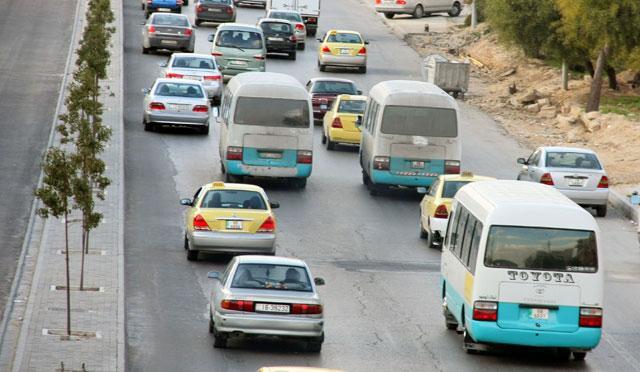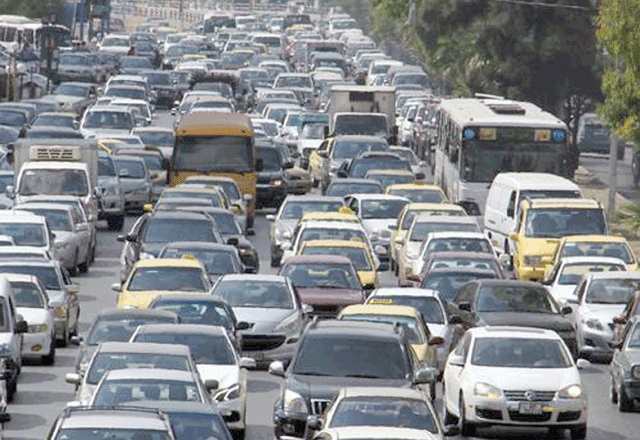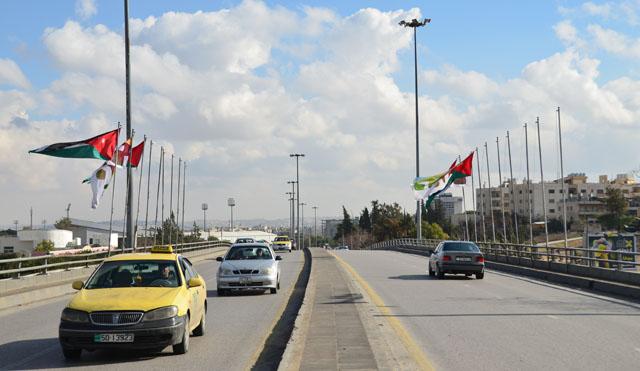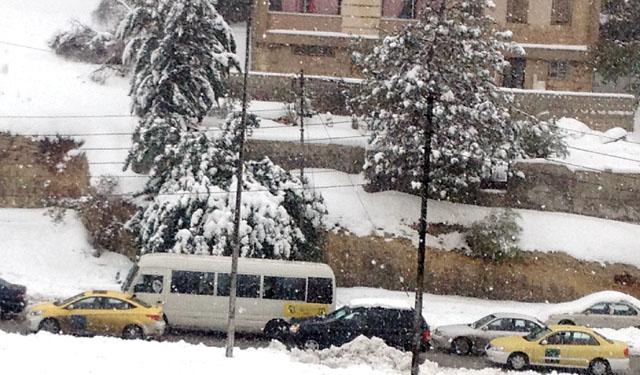You are here
Decline in number of public transport means adds to working mothers’ woes
By Maria Weldali - May 28,2022 - Last updated at May 28,2022

Recent figures issued by the Ministry of Transport showed that the number of transportation modes in Jordan decreased by 6.6 per cent during the first quarter of 2022, when compared with the same period last year (File photo)
AMMAN — The decline in the number of means of transport in Jordan adds further challenges to working women, according to Jordanian women.
Recent figures issued by the Ministry of Transport showed that the number of transportation modes in Jordan decreased by 6.6 per cent during the first quarter of 2022, when compared with the same period last year.
The ministry revealed that the local public transport system includes buses, taxis, medium and small sized passenger vehicles.
The number of taxi offices has also declined, whereas last year the number reached 141 offices, and now there are only 136 in Jordan, the ministry added.
“Women’s public transport experience in Jordan needs to be improved and become more gender equitable,” according to Hanadi Iyad, a working mother based in Amman’s Khalda neighbourhood.
Speaking about the key concerns women in Jordan have while using public transport, Iyad, who is also a local women activist, noted that in order to get to her job, she uses two transport modes: A taxi and a bus.
“Using only a taxi is very expensive, and decreasing the number of transport modes in Jordan will only create a much bigger problem, especially for us women,” she concluded.
Walking every day to the bus stop after a long day at work is tiring, and one must be fast in order not to miss the bus due to the limited number of public transport services, public transport user Sawsan Muhtasib, told The Jordan Times on Saturday.
She added that transport networks need to be improved and not decreased.
“Significant numbers of working women rely on public transport which already faces tremendous challenges, so a decline in the number of buses or other modes will negatively affect their mobility decisions and limit their access to the labour market,” Muhtasib added.
Related Articles
AMMAN — The number of vehicles using ride-sharing apps decreased by 682 to reach 11,024 belonging to seven companies in the second qua
Over 80 per cent of the capital’s bus and service cab operators have obtained the new fare permits from the Greater Amman Municipality’s (GAM) public transport operations department, a municipality official said on Saturday.
The Transport Ministry will issue new regulations to upgrade the public transport fleet by introducing buses capable of operating under difficult weather conditions, Minister Lina Shbeeb said Wednesday.



















